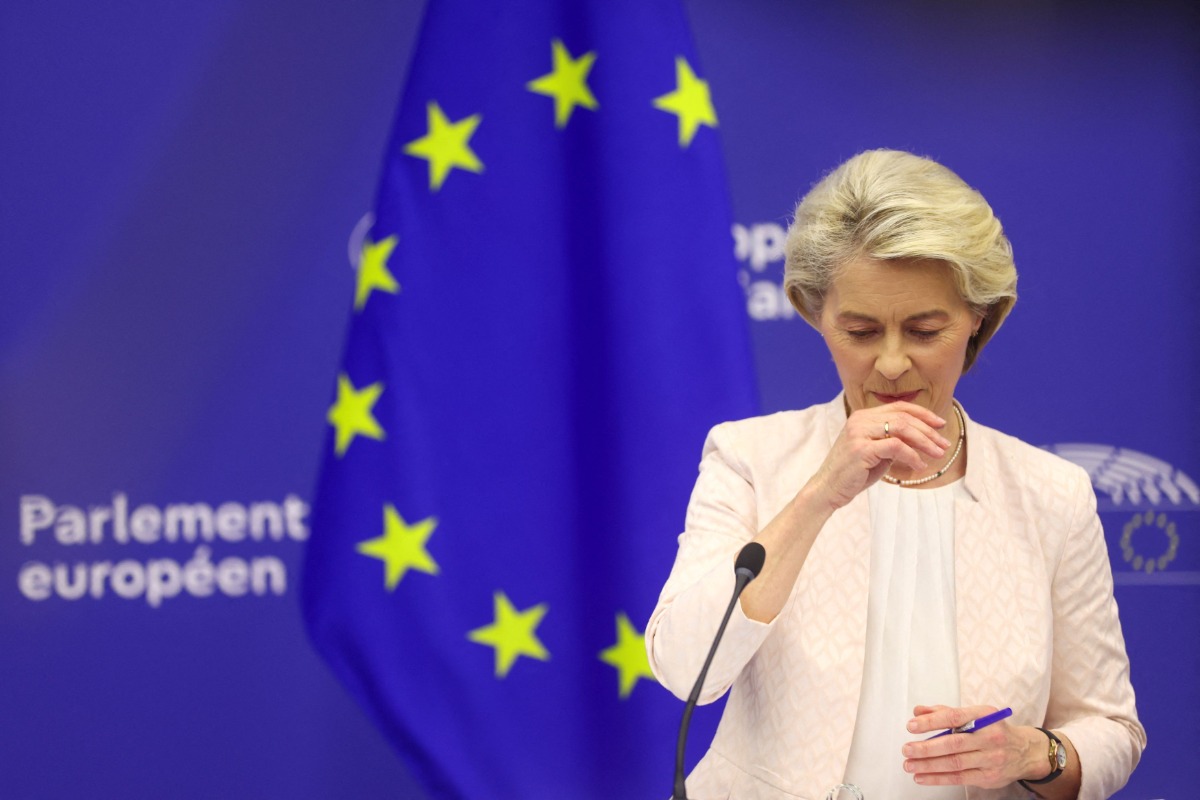The issue of common funding is back on the table for Europe, with demands for concrete action and consensus to make the EU a stronger player on the international stage.
Ursula von der Leyen proclaimed a clear ‘yes’ once again to joint funding for common European projects, but explained that this will require political will.
“There is a need for joint funding for some common EU projects. Our task is to define which ones. You (note: Mario Draghi) talked about defense, you spoke about cross-border energy infrastructure. We have to look at the political will to implement the projects and determine how to finance them through new national contributions or new resources of our own,” the Commission President explained.
In his report on EU competitiveness, Mario Draghi stresses that joint funding for specific projects will be key to maximizing productivity gains, in particular in relation to the innovative research and infrastructure required to integrate artificial intelligence into the economy. At the same time, he adds that there are other public goods, such as investment in networks and interconnections and the financing of the joint procurement of defense equipment and defense research and development, that will suffer from shortcomings and gaps without joint action and funding.
In relation to defense, Kyriakos Mitsotakis and Donald Tusk sent a letter to Ursula von der Leyen just before the European elections in which they argued for the creation of a common EU air defense shield. In the same vein, the Commission President stressed the need for Europe both to upgrade its defense industry and to promote common defense projects, such as an “air defense shield for all”.
The message was equally clear in the conclusions of the June Summit: proposals were needed, to be fleshed out in the term that has just begun.
“The leaders also invited the Council and the Commission to present developed options for funding to strengthen the EU’s defense technological and industrial base and to fill critical capability gaps,” the 27 said.
As a European source explains, the issue is far from straightforward. First, we need to identify the joint financing projects. Then, in the case of anything relating to defense, for example, we will need to agree on where the headquarters will be located, or what the range will be. Finally, we will need to examine how much funding will be required, and where the money is to come from.
Naturally, none of these negotiations are expected to be easy, given that there is still resistance from the “usual suspects”: Germany, the Netherlands, Sweden and Finland. Denmark seems to have taken a step back, however, and is now in favor of joint financing when it comes to defense.
In relation to defense spending, Ursula von der Leyen is now expected to appoint a defense commissioner who, in cooperation with other commissioners, will be called upon to promote EU independence through the development of its defense industry, which falls within the Commission’s competences.



